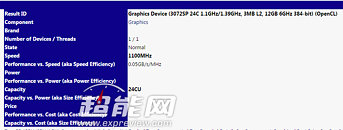
Samsung Reportedly Acquiring New Equipment Due to Disappointing HBM Yields
Industry insiders reckon that Samsung Electronics is transitioning to molded underfill (MR-MUF) production techniques—rival memory manufacturer, SK Hynix, champions this chip making technology. A Reuters exclusive has cited claims made by five industry moles—they believe that Samsung is reacting to underwhelming HBM production yields. The publication proposes that: "one of the reasons Samsung has fallen behind (competing producers) is its decision to stick with chip making technology called non-conductive film (NCF) that causes some production issues, while Hynix switched to the mass reflow molded underfill (MR-MUF) method to address NCF's weakness." The report suggests that Samsung is in the process of ordering new MUF-related equipment.
One anonymous source stated: "Samsung had to do something to ramp up its HBM (production) yields... adopting MUF technique is a little bit of swallow-your-pride type thing for (them), because it ended up following the technique first used by SK Hynix." Reuters managed to extract a response from the giant South Korean multinational—a company spokesperson stated: "we are carrying out our HBM3E product business as planned." They indicated that NCF technology remains in place as an "optimal solution." Post-publication, another official response was issued: "rumors that Samsung will apply MR-MUF to its HBM production are not true." Insiders propose a long testing phase—Samsung is rumored to be sourcing MUF materials, but mass production is not expected to start this year. Three insiders allege that Samsung is planning to "use both NCF and MUF techniques" for a new-generation HBM chip.
One anonymous source stated: "Samsung had to do something to ramp up its HBM (production) yields... adopting MUF technique is a little bit of swallow-your-pride type thing for (them), because it ended up following the technique first used by SK Hynix." Reuters managed to extract a response from the giant South Korean multinational—a company spokesperson stated: "we are carrying out our HBM3E product business as planned." They indicated that NCF technology remains in place as an "optimal solution." Post-publication, another official response was issued: "rumors that Samsung will apply MR-MUF to its HBM production are not true." Insiders propose a long testing phase—Samsung is rumored to be sourcing MUF materials, but mass production is not expected to start this year. Three insiders allege that Samsung is planning to "use both NCF and MUF techniques" for a new-generation HBM chip.






























